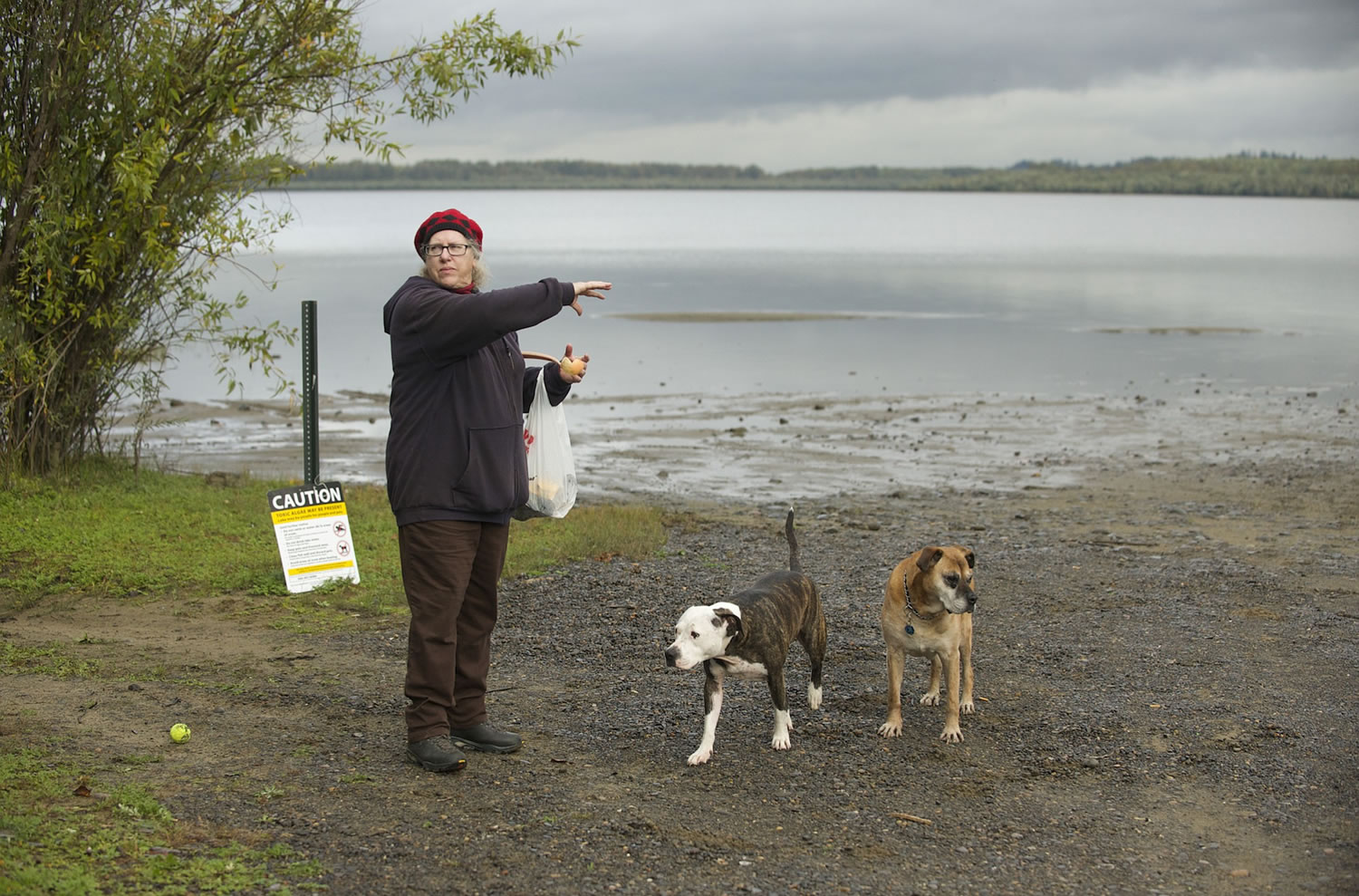When Julia Rosenstein moved to Vancouver in 2006, she began searching for places to escape. She eventually happened upon the Shillapoo Wildlife Area, next to Vancouver Lake.
Rosenstein and her three dogs are now frequent visitors to the mostly secluded spot.
“Almost every day,” she said. “It’s just something I need.”
But Rosenstein says she has encountered a persistent problem on the site: garbage and other items dumped along the lake’s shore. Among the things she’s found are beer bottles, scrap wood and diapers. Hunters have left dead birds — sometimes partially carved — on the ground.
The Washington Department of Fish & Wildlife, which manages the site, regularly sends crews to clean up. Rosenstein herself has also pitched in, she said.
“I’ve come home with boxes,” she said.
Dumping has long been an issue at the Shillapoo Wildlife Area, said Sandra Jonker, a wildlife program manager with the fish and wildlife department. Of the dozens of public access sites the department manages in the region, “I think it’s probably one of our worst ones,” she said.





